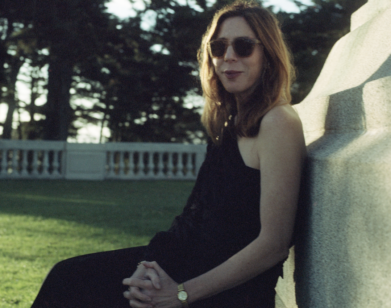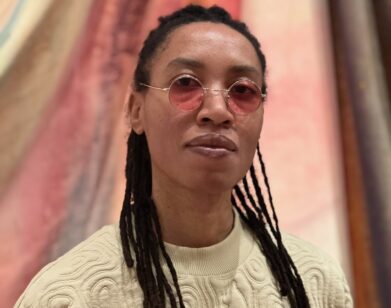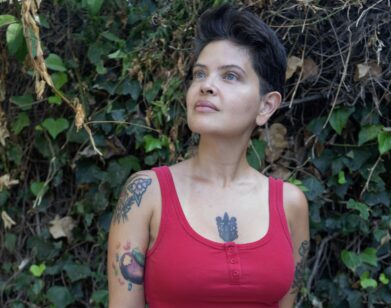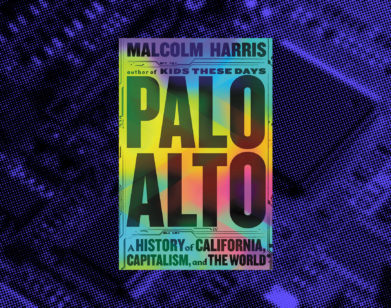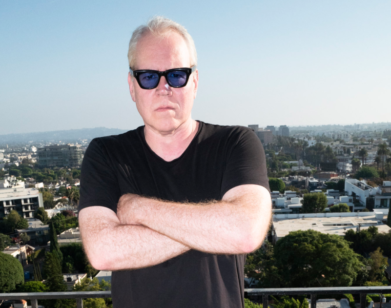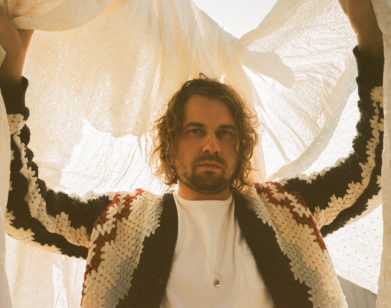Rachel Kushner’s new novel asks readers to remember the female prison population
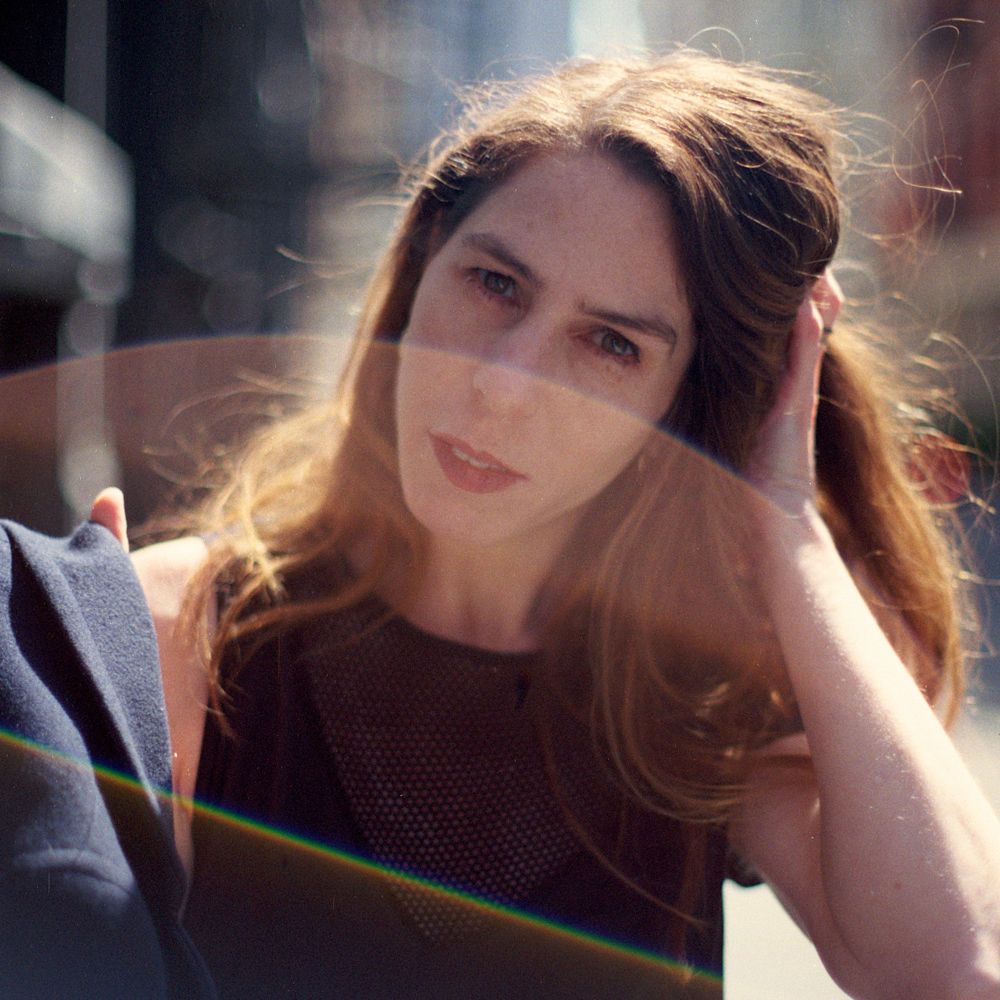
Former stripper Romy Hall serving six years and two sentences, crooked cop Doc killing for sport, grad school dropout Gordon Hauser teaching GED classes at a California women’s prison—these are the voices we hear from in Rachel Kushner’s attention-shackling new novel, The Mars Room.
Written in alternating points-of-view and occasional free-verse chapters without a central plot, the novel reads like a series of vignettes, each inhabiting the inner life of a different character in the Stanville Women’s Correctional Facility in California, eventually intertwining in revelatory ways. With the socio-economic stratification of San Francisco and its surrounding counties remaining constant throughout The Mars Room’s shifting narrative elements, it becomes clear that the incarcerated women—specifically—of this novel had been destined for a spin through the criminal justice system since the days they were born into poverty, drug addiction, and broken families.
This is the third novel wherein Kushner, 49, buries herself in the boxes she plans to unpack. Her first two (Telex from Cuba and The Flamethrowers, respectively) were both National Book Award finalists. As part of her writing process, Kushner toured California correctional facilities undercover and watched heart-wrenching trials play out in court. She incorporated the stories of childhood friends trapped in cycles of incarceration and befriended prisoners serving brutal sentences, maintaining contact even now, long after her novel is finished. Evidence of these deeply personal connections is woven into the pages of The Mars Room, named for the club where Romy dances before murdering her stalker, each section drawing upon more and more compassion from the audience—can you make space in your heart for a character who has committed unspeakable acts of violence? Kushner did.
In person, Kushner is sharp, answering questions without missing a beat, and blunt in her total honesty. Upon drawing a comparison between The Mars Room and the Netflix female-centered prison drama Orange is the New Black, she pushes back—her novel, she says, is largely about California. “It was my way of asking readers to acknowledge this very large population of real people who’ve been [made invisible] by my state.” Her other concern with the comparison is the ease with which any narratives about women in prison can then be tokenized by one story.
Which, she’s right—it is reductive to bucket two works together simply by virtue of subject matter, but perhaps the larger problem is the absence of conversations about incarcerated women happening in the mainstream. Luckily The Mars Room, while fictional, is a great starting point.
JANE GAYDUK: I wanted to talk more about invisibility. Society tends to forget about the prison population partly because once someone is imprisoned they’re kind of taken out of the population and it’s so hard for them to then be integrated back in and I think our system has a lot to do with that. Because there’s no real rehabilitation. I was wondering what all the people you spoke to during your investigative work had to say about that.
RACHEL KUSHNER: I have a lot to say about that and so do they—I don’t think that anyone should go to prison for life. I don’t care what you’ve done. The idea of it is uniquely American and punitive and cruel and it really is, in a way, a form of human sacrifice. They say that it’s about public safety but there are a few that need to live separate from the rest. All of [the people I’ve met] should be integrated back into society, and they want so badly to be able to contribute in a positive way after their one act of harm that has now come to define their entire lives. I don’t really understand why the unit of the life, which is like a telescopic baton, it’s collapsible and expandable depending on how long you live, four years or 40, why that should be the unit of punishment. It’s a kind of demonic philosophy to think that you need to repay and it is your life with which you will repay. Time is like the endlessly depletable resource, and sometimes the only resource that poor people have. So there’s this idea that takes on an almost Judeo-Christian significance in that [a person with five life sentences] needs to be reincarnated five times in order to repay his debt to society, but if it were truly a Judeo-Christian punishment, then he would be allowed some possibility for redemption.
Prisons to my mind, at least in California, do not rehabilitate people. Prison is a very tough place and in order to survive there you have to pick up skills really quickly. Some people are better or worse at prison—I grew up with somebody who went to prison who was very very good at prison and he’s dead now. And part of the cause of his death is that when he did finally get released, he had no idea how to live in society because everything he had learned in prison would harm him when he got out. I’ve seen that with other people too because the kinds of skills you need to survive there will not help you in society and vice versa because it’s a really hostile place. There are invisible vectors of control and power that people in prison learn how to see. In regular society, the civic fabric is such that operating on that axis of power and respect will not help you. So you get out of prison and you don’t know how to interact with other people, basically. I mean there are other structural blockages for people to re-entry, like it’s very hard for them to get section 8 housing, it’s very hard for them to get welfare assistance, it’s very hard for them to get jobs, they can’t get federal loans to go back to school, etc etc.
GAYDUK: When you mentioned power dynamics, I also found it interesting the way you write about the differences between a women’s prison and a men’s prison in your novel. The comments are often funny in the book, but it’s like—
KUSHNER: Better water pressure? Yeah [laughs] I was just kidding i don’t know if they have better water pressure. But symbolically the effect is true, I would say.
GAYDUK: It was more how you compared the difference in environments, mentioning that the women are seen as whiners and complainers, while the men are outside, training just in case they have to murder someone.
KUSHNER: Yeah that’s what it’s like. I spend a lot of time in a specific women’s prison, but I go there as a visitor. And I’ve been in a lot of men’s prisons like, on the yards, walking around talking to people in cells. So I’ve seen them in depth, and part of the reason for that is there are just many more men’s prisons than there are women’s prisons. But the differences are very noticeable to me. Like the question of what is respected and what the currency is, in men’s prison it’s strength. And also mental strength.
A cerebral culture is not inculcated in the women’s prison and I think it’s very hard for them to get that going for a number of complicated reasons that include the way that they are infantilized by the staff and the guards. They’re treated like children. Like you said, the women are perceived as whiners, and as I put in the book, a lot of guards don’t want to work in a women’s prison because they hate the idea that the women are going to bicker and argue with them over every rule. Whereas the men work on this concept of strength and honor, but are animalized by the guards and treated like subjects who are in some kind of gladiator school.
But in other ways the men do have better access to work and education and certain kinds of resources that the women don’t have. And then there’s something about the environment for women that’s very psychologically torturous—like people know how to screw with each other. And I feel like women’s prison is more hectic for women than men’s prison is for men in this way, like there isn’t really a free space where women have free time to read and think and nourish their interior because the prison is [psychologically] loud for them.
GAYDUK: Because they’re constantly worried about what might happen to them.
KUSHNER: Yeah we all know what that’s like. When you’re in a crisis emotionally it’s hard to focus.
GAYDUK: I read that you wove pieces of your own life into Romy’s story—was it a way for you to come to terms with certain aspects of yourself?
KUSHNER: From talking to close friends, I’ve reckoned more frankly with the idea that the book is about childhood, on some level. Just because when people who are really close to you read your work and go oh I see you in this and I understand the deeper groundwater that you were pulling from in the book—I can only see this after the fact—I wasn’t looking to produce an effect, I was just trying to have an aesthetic, intellectual, moral, psychological journey myself for six years and had a lot of questions that were painful and unanswerable and the book was what I produced…I can see now that in a way it was an homage to people that I knew growing up and the girls who were my really close friends and a lot of people that I don’t know where they are and what had happened to them, and all the things that we witnessed together. It’s funny how trauma works. There’s a million great things that happen in life but you can’t remember them clearly and the one thing you remember is the terrible thing that happened. And in order to create a character that I could know intimately and be able to maneuver from inside of her and control her tone which is clipped and also syncopated, I needed to understand her deeply. And in talking to women in prison I just came up against this very hard facticity, which is I am protected from going to prison for life and that is a fact because I had a good childhood and the resources that I have. But many of the people I grew up with were not protected from that, and the environment we were in sort of teemed with those possibilities.
And I had this one very good friend who people called Conan, he was a man, I named my character Conan after him, and so he escaped from jail and then went to prison and then died. There’s a lot of sadness about that and other people with whom I grew up and I had been writing these pieces about San Francisco and I realized that they were the remembrances of the character in the book and they were a way for me to grasp a situation and a predicament and do it with full knowledge. And so it wasn’t like I want to get my own story in there, it was more like in order to tell this story, I have to not prevent this material from merging into the book, because I have this material and know this material.
GAYDUK: Why did you choose to weave between the point of views of different characters?
KUSHNER: As I said before, and maybe it’s presumptuous to say, that my book is about California, but I really feel that it is, and I had these other stories that were burgeoning within me. Like the character of Doc was easy for me to write and he was one of the first people that I wrote and his entire story just fell out, whole cloth. I barely changed it all in the final published form. From the moment that he appears, to when his roommate tries to kill him—I wrote the later part after I had developed who he was in the book—but that was there and he was inspired way loosely by this interaction I had with a cop who is serving life without the possibility of parole in New Folsom Sacramento State Prison, and I think that this guy, this real person’s essence went into me and I knew he was part of the story and there was something about him that I understood and needed to project large in language. I trust those instincts as a writer. I need things to be loose and intuitive and fun for me and I felt incredibly close to him. His way of narrating in the third person is kind of a ruse cause it’s sort of a first person, like he’s advocating on his own behalf in the third person rather than doing it like a straight, classical nineteenth century free and direct style, so you do what you can, and I went where the book was taking me.
With the development of the character Gordon Hauser, who teaches in the prison, I did decide that I wanted to have a character who could go in and out. He’s not at all a proxy for me, he’s very different than I am. I’m a lot more like some other characters in the book, but he does have my geographical experience because I go to these prisons often. And the experience of that involves driving from Los Angeles, where I live, way up the Central Valley into this vast landscape of industrial farming, and it’s part of the story. Although I would never try to make this schematic argument about precisely the way in which it’s part of the story, but it is the economic, historic kind of sense that the prisons are in these places and without explaining the why or the reason for or the symbolism of being surrounded by almond orchards, I wanted Gordon to just be witness to it and the reader figure out what any of that means, if it does mean anything specific, or can be reduced. So it allowed me to paint in one more component of what I think this world is, of California.
GAYDUK: But you and Gordon—who’s not a prisoner or a guard—overlap in the way that you’re both tangential to this prison biosphere, but not totally in it.
KUSHNER: Probably your real question is, can somebody who has never been to prison fully understand the world that’s inside? I think no. But trying, for me, was an ethical imperative and my friends in prison have read the book and we’ve talked about it a lot, and they feel like their lives can be recognized after they’ve been registered structurally invisible by the state and by the court system. So even if there’s some feeling about what that world is like, which is a radically different world that can’t be grasped by someone who hasn’t herself spent decades in prison, like trying to understand and honoring that it is a world and an entire humanity that has forms of intelligence that are individual and collective, is work that is worth doing, at least.
GAYDUK: Has talking to and writing about so many people who have lead traumatic lives caused you to inherit some of that trauma, emotionally?
KUSHNER: I don’t like to point attention to my own suffering because other people—my friends—are suffering so much worse than I am because they’re never allowed to undo the one thing that they did and have had things happen to them in their lives that are unthinkable, but honestly yes…When I first started this book in 2012 I got the flu, I was really sick, and I felt like I had gone into this dungeon and I was really scared for myself and whether or not I would be able to handle what I was about to do.
I went undercover on this tour of all these men’s prisons with people who wanted to get jobs working for the California Department of Corrections as guards, and at each prison they show you their own collection of edited-together closed circuit videos of stabbings in the yard. And it’s really hard to watch that. It’s really hard to kill somebody with a homemade instrument—people literally stop and rest while they’re stabbing somebody and we had to watch that.
I ended up feeling ultimately that there is a part of me that’s innocent and that kernel of innocence is inviolable. It’s more supple and enduring than I might have anticipated, because I’m still me and I still have a lot of hope and joy and positivity about people. Making a space inside of me in terms of my moral complexion for acts of harm that people I love have done was a process I wanted to go through, and I want to make that space for them..I wanted to not objectify violence anymore and keep a distance and see that I’m not in a position to judge other people. Some of that is just the limitations of subjectivity.
THE MARS ROOM (SCRIBNER) IS AVAILABLE NOW.

